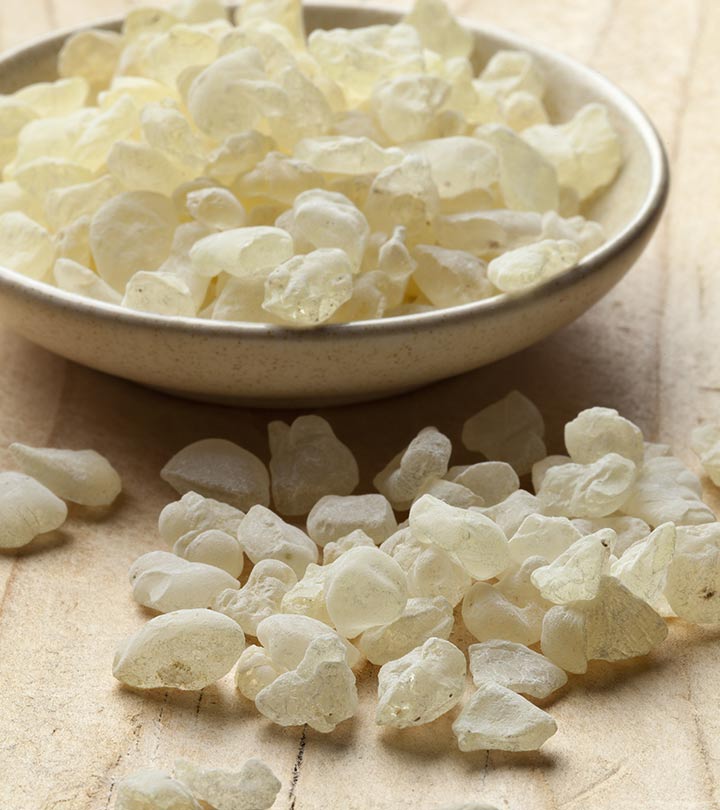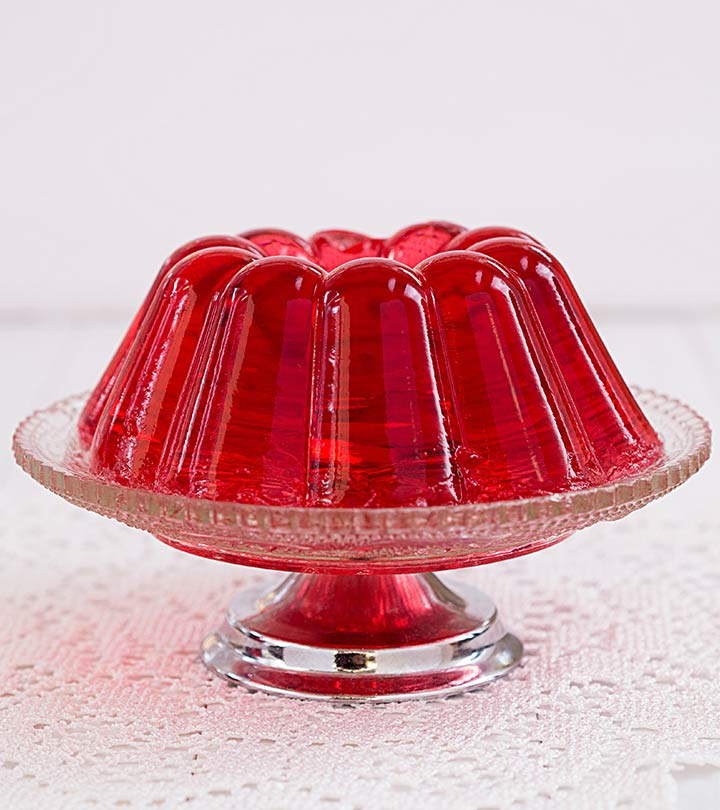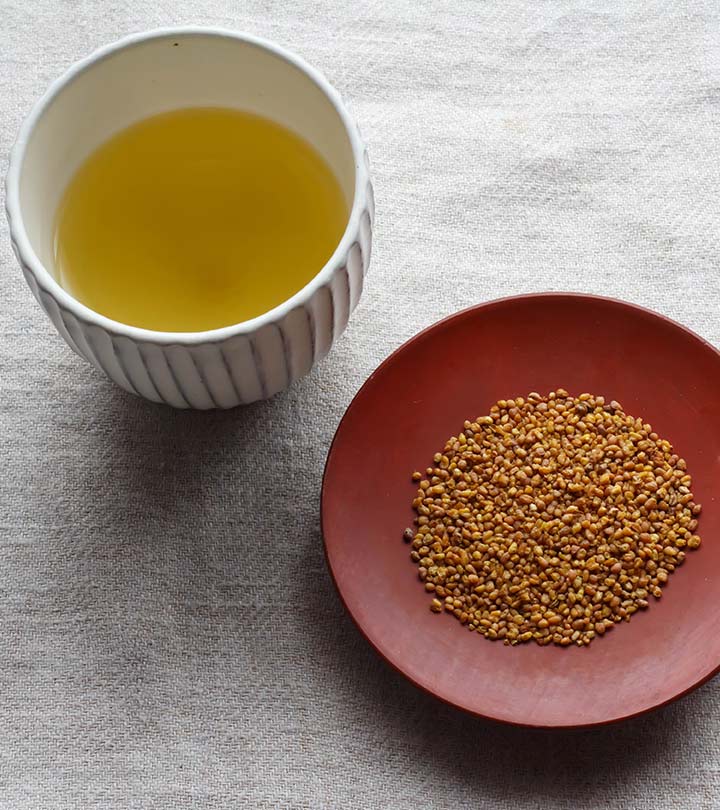3 Health Benefits Of Mastic Gum, What Is It, & How Much To Take

Mastic gum is a resin secreted from the mastic tree. This age-old remedy can help treat many digestive problems. Mastic gum benefits your health in a number of ways. It has anti-microbial and anti-inflammatory properties that help treat many ailments. The Greeks believed that this plant resin had healing effects.
It is also a part of the Mediterranean cuisine for its therapeutic values, which can help treat several intestinal, stomach, and teeth problems. This article explores the potential health benefits of mastic gum and also explains how much of it you should consume. Take a look.
In This Article
What Is Mastic Gum?
Mastic gum is a natural resin produced from the trunk and branches of the mastic bush (Pistacia lentiscus var. Chia). This gum is produced in the form of tears when you cut the bark.
Mastic gum drips through these incisions as a clear, gummy liquid that solidifies over time. These translucent-opaque granules of mastic gum are cleaned, segregated, and processed further (1).
Traditional medicine has used mastic gum as a remedy for several gastrointestinal disorders. The Greeks believed it could treat gastralgiai XA pain inside or outside the muscle walls of the stomach triggered by digestive issues, overeating, stress, or constipation. , peptic ulcers, and dyspepsia. The anti-ulcer activity of this resin is experimentally proven too (2).
Did You Know? Archeological findings suggest that mastic gum was used for cosmetic, culinary, and medical purposes in the Mediterranean basin since the 7th century.
Mastic gum also possesses proven antimicrobial and antibacterial properties. Above all, it has a potent antioxidant effect and inhibits the production and activation of pro-inflammatory compounds (3). Want to know how this resin can help maintain your health? Read on!
3 Main Ways Mastic Gum Can Benefit Your Health
1. Can Reduce H.pylori Infection, Ulcers, and Inflammation
Shutterstock
Mastic gum possesses antibacterial properties. It is, hence, possibly effective in reducing Helicobacter pylori infection. This progressive pathogenic infection can lead to chronic gastritis and gastric ulcers if left untreated (2).
Mastic gum extracts showed about a 30-fold drop in H.pylori colonization. But there’s not enough evidence backing this (2).
However, some hypothesize that this property is because of the mono- and sesquiterpenoids (essential oils) and triterpenoids (e.g., masticadienonic acid) the gum contains (1).
Also, this resin has no/minimal side effects on long-term consumption. So, the habitual intake of mastic gum might control the colonization of H. pylori in your stomach (1), (2).
Related: How To Get Rid Of Mouth Ulcers – 15 Natural Remedies To Try
2. Works On Functional Dyspepsia
Shutterstock
Dyspepsia is the uncomfortable feeling or pain in the upper-middle part of your stomach. It is usually accompanied by bloating, heartburn, nausea, vomiting, and burning stomach ache.
In various studies, hydrogen receptor antagonists and proton-pump inhibitors did not improve dyspepsia. Herbal remedies like Iberogast and artichoke leaf extract showed promising results. Mastic gum is a well-known herbal alternative that can treat this condition (3).
Almost 25% of its total weight is a polymer. In an acid environment, this becomes a runny resin, which could have gastric cell-protectant effects in patients. The gum has triterpenoid acids that could have antimicrobial and antioxidant effects on these cells (3).
Dyspepsia patients treated with mastic gum showed double the improvement in the placebo group (3).
Identifying the active substances of the resin involved in fighting dyspepsia can give more clarity about its dosage and specificity.
Yes! It’s true!
- Mastic gum can also regulate hypertension. Due to its anti-inflammatory effect, this resin can ameliorate vascular stiffness and hypertrophyi XA condition in which the walls and chambers of an organ, cells, and tissues thicken or expand in response to various stimuli. (4).
- In other words, mastic gum can relax the arteries and myocardial vessels. Also, rat studies propose that mastic gum can lower pressure on the heart (4).
- Due to its antimicrobial properties, mastic gum can fight oral bacteria. Chewing on mastic gum/resin can decrease plaque, gum inflammation, and dental caries (5).
- Both these areas continue to be subjects of active research, though.
- This gum is used in Greek, Turkish, and Arabic kitchens in the powder form as a food additive, in the form of sugar-containing gel as a sweetener, and as mastic oil as a sweet additive in drinks.
Related: 12 Home Remedies For Sour Stomach: Causes And Prevention Tips
3. Can Reduce The Severity Of Inflammatory Bowel Disease (IBD)
Shutterstock
Inflammation of the parts of intestines can cause inflammatory bowel disease. This inflammation can be a result of a pathogenic attack, fat accumulation, gastritis, etc. Crohn’s disease and ulcerative colitis are common forms of IBD.
Due to its established anti-inflammatory effect, chios mastic gum could make an excellent remedy in this case. It also possesses antibacterial and antioxidant activities that can help address the cause of IBD (6), (7).
In several studies, mastic gum treatment reduced the severity of Crohn’s disease. It lowered the levels of pro-inflammatory compounds in the serum, such as IL-6, CRP, and TNF-α (6), (7).
Mastic gum also inhibited other factors responsible for the migration of white blood cells to inflamed sites (7).
Seems like mastic gum is a great go-to for all GI and excretory tract issues! Any idea what is/are behind such potent cytoprotective properties? Here is the answer!
Related: 14 Home Remedies For Digestive Problems And Prevention Tips
What Are The Active Components Of Mastic Gum?
Mastic gum has anti-inflammatory and antioxidant activities because of a power-packed biochemical profile.
It has triterpenes of oleanane, euphane, lupine-type.
Alpha-tocopheroli XA naturally-occurring type of vitamin E and fat-soluble antioxidant that helps break the chain of oxidation reactions. , polyphenols, verbenonei XA natural organic compound found in plants and many essential oils and has a pleasant odor. , alpha-terpineoli XA terpene alcohol used mainly as an aromatic compound in perfumes, oils, cosmetics, and flavors. , and linalool were also identified in the resin.
Triterpenes have been associated with the hypotensive effect of mastic gum. Linalool and similar compounds were responsible for its antibacterial activity (8).
Stylecraze Trivia Mastic gum also has a positive effect in reducing cholesterol as it is a natural antioxidant that prevents oxidation of low density lipoprotein (12).
Are you wondering how much mastic gum to take? Scroll down.
How Much Should You Take?
Shutterstock
Chewing or ingesting mastic gum can clear your teeth, tummy, and bowel.
About 0.06 mg/ml of this resin could effectively kill H.pylori. Concentrations as low as 125 μg/ml and 500 μg/ml inhibited 50% and 90% of H. pylori strains (9).
However, further information is required to help decide the right dosage of mastic gum. Until then, you may contact your physician or nutritionist to know more about this resin.
Did You Know? Mastic gum is used in making ice creams, Turkish delight, and Mastiska liquor.
Infographic: Possible Side Effects And Risks Of Mastic Gum
Mastic gum is a resin that comes from the mastic tree. It offers many health benefits if consumed in moderation. However, it may cause some side effects, too. Purchase it from a trusted manufacturer and follow all instructions carefully before using it to avoid any adverse reactions. Click on the infographic below to learn more about the possible side effects and risks associated with mastic gum.
Mastic gum is a resin that helps treat many ailments. Its antioxidant, anti-microbial, and antibacterial properties are well-known. The benefits of mastic gum are many. Intake of this age-old remedy in moderation may help reduce H.pylori infections, work on functional dyspepsia, treat ulcers, decrease inflammatory conditions, and minimize the severity of inflammatory bowel disease (IBD). Hence, consume this gum in the recommended dosage levels to reap its maximum benefits.









